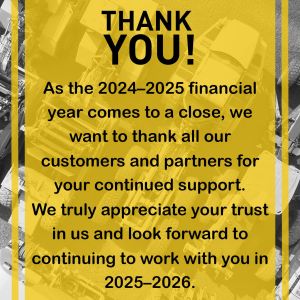The official line (according to last months “Universities Accord” report) is that Australia is transitioning to a knowledge-based economy with the goal of having 80% of working age Australians with a University qualification by 2050. Having teenage kids myself, we’ve talked a fair bit about career choices, and the reality of what education (Trade or Uni) is best doesn’t match the academic vested interest recommendations. So what should the next generation of employees and employers do to have the best prospects in the future?
The best advice for individuals and businesses alike is to ensure that whatever path you chose, you have a passion for that field of work. If you aren’t interested in the work that your career leads to, then days will be very long, and you will not succeed financially nor achieve satisfaction.
About 15 years ago we saw a push that “everyone should have a right to go to university” and basically pushed a lot of people into studying courses that they weren’t suited to; or courses that were fashionable but didn’t lead to jobs within the field of study. Since then, there has been a major misalignment between what jobs exist, versus the number of people graduating. Typical examples are film making, social justice, and environmental studies fields. Not a very smart approach to developing people for a so called knowledge economy.
It’s important to look at some facts:
- In 2021, only 56.8% of people aged 15+ had completed year 12. How will we ever get to 80% having completed University if we can’t even get people to complete school and be ready for higher education study?
- 2022 statistics show completion rates for universities is around 45%. For Trades courses, the ratio is about 50%. Neither of these figures are particularly impressive.
This trend of pushing people into universities has created an unfair stigma to trade qualifications. The quality of work in many occupations has also taken a hit from when training moved from the more hands-on trades schools to theoretically underpinned university courses. A significant proportion of the population are not academically inclined but are great at practical work. Success is not just measured by financial outcomes, but many trades careers lead to incomes higher than those from the theoretical world.
Below is a simplistic calculation to show the different incomes between a trade and university student during the years of study and beyond:
Trade Qualification:
Cost of Education: Zero
Earnings through 4 years work: $150,000 (minimum)
Net position: $150,000 income
University Qualification:
Cost of Education: $60,000 (to $130,000)
Earnings through 4 years work $65,000
Net position: $5,000 income (to $65,000 debt)
The above shows that as a minimum, someone going through a trade will be at least $145,000 in front at the starting point of their career, money they can put towards a house or investment that generates an income. Some important notes:
- The figures assume a typical apprentice MINIMUM wage. Most get paid more than this.
- The apprentice income figure is based on a 38-hour week. Most apprentices boost their income (often significantly) through overtime, plus get holiday pay and paid whilst attending study.
- By comparison, the University example has the person in full time study, plus working 15 hours every week in addition to this. In other words, technically the Uni student is either working or studying about 55 hours per week in this example.
- At the end of the 4 years, the university student starts at the bottom of the career ladder, whilst the Apprentice is already earning roughly the same as many of their employed peers. As an approximation using averages, this means that in year 5 a trades qualified person is earning about $30,000 more per year.
- Depending on degree and other factors, this balance will likely change over the coming years. However, note also that once having gained a few years experience, the ratio of people running their own business is that only 44% have a university degree. Considering there are approximately twice as many people undertaking university studies compared to trade qualifications, many more trades persons end up working for themselves than in someone else’s business.
The final recommendation is to consider how future proof your career choice is. With ever increasing adoption of technology, we can see some wild fluctuations in demand for some jobs. Artificial Intelligence and computers are most likely to take over “knowledge based” roles, the more theoretical the greater the risk. As I’ve written about previously in November 2023 Jumping off the Carousel, and February 2023 Too smart for our own good, some Medical and Legal jobs are already being done by computers instead of people. This will only increase. Many manual roles (for instance manufacturing) have been getting automated for decades already. But there are many roles that will be difficult to ever remove people from, for instance diesel fitting, plumbing, or electrical work.
Just like study isn’t right for everyone, neither is hands on work. In the context of more and more computers, I’m not quite even sure what a “knowledge based economy” is, especially considering 70% of our income as a nation is derived from the time proven physical activity of mining and agriculture. It would be a shame to hitch our future education direction to the fuzzy notion pushed by universities that “the jobs you will be doing in the future haven’t even been thought of yet”. Sure, new inventions come about every day that replace whole careers (when was the last time you met a blacksmith?). But at the end of the day, a job in a field doing something everyone has always needed should give you the best chance to stay relevant. If you want to, you can do it!
(disclaimer: the author has a university education but works in a trades dominated industry with many great people!)
Words from the wise
“Hard work beats talent when talent doesn’t work hard” – Tim Notke
“Believe you can and you’re halfway there” – Theodore Roosevelt
“There are no secrets to success. It is the result of preparation, hard work, and learning from failure” – Colin Powell
“Opportunity is missed by most people because it is dressed in overalls and looks like work” – Thomas Edison
As always, Onwards and Upwards!
Fred Carlsson
General Manager



